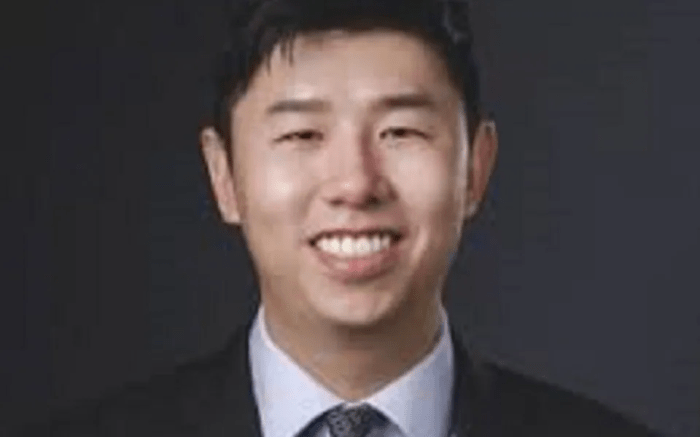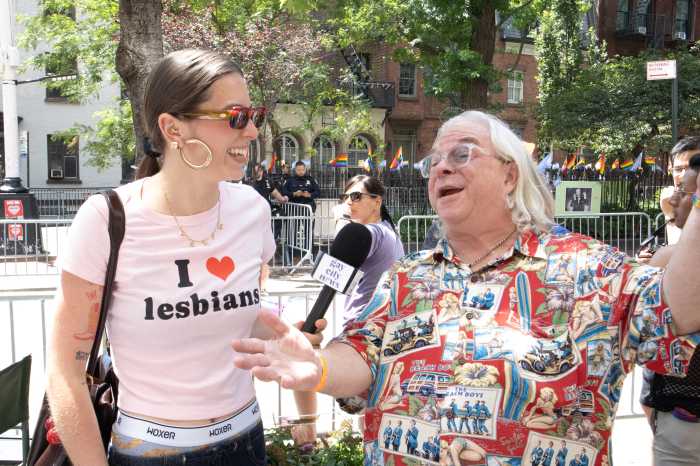By Michèle De Meglio
He may be working the “education mayor” angle but Michael Bloomberg has created a school system that is disrespectful to administrators and dismissive of parents, the six main mayoral candidates asserted. At an education forum hosted by the Council of School Supervisors and Administrators (CSA) at St. Francis College, the candidates – former Bronx Borough President Fernando Ferrer, Manhattan Borough President C. Virginia Fields, City Council Speaker Gifford Miller, Steven Shaw, an investment banker, former Councilmember Thomas Ognibene, and Rep. Anthony Weiner – blamed Bloomberg for creating a school system that keeps educators and parents in the dark. “You don’t see Mike Bloomberg at forums like this with parents. You know why? Because he really doesn’t care all that much about what parents, what supervisors, what teachers have to say,” Weiner said of the mayor who, according to CSA President Jill Levy, offered to send a representative to the forum but the administrators’ union declined. “Any opinion is not welcome at Tweed,” Miller said. “We have to build a school system in which parents are welcome, parents are embraced, and parents are given positive opportunities to affect their child’s education.” Citing the city Department of Education’s (DOE) $75 million Leadership Academy to train principals and its $40 million initiative to hire a parent coordinator for each of the city’s schools, Weiner said these programs would be unnecessary if the city agency opened communication lines with administrators and parents. “That $75 million has gone into this Leadership Academy when we have a wealth of qualified assistant principals throughout the system,” he said. “You wouldn’t be wasting that money on leadership academies if you spoke to the true leaders in our community. You wouldn’t be wasting the money on parent coordinators if you spoke to the actual parents in our community. If [Bloomberg] thinks he’s not going to be criticized for those things, he has another thing coming.” A complaint voiced by many teachers and administrators, candidates criticized Bloomberg and Schools Chancellor Joel Klein for failing to provide adequate support to educators. “When they can’t do their job because they get no support from district offices or regional offices, they’re spending too much of their time leaving voicemails that are never answered, answering emails that are unnecessary,” Ferrer said, “that is a waste of enormous talent in our system. It’s an enormous diversion of resources. It’s an enormous perversion of what we should be doing to educate every child in every community in every borough in this city.” Shaw said the DOE should place more power in the hands of principals. “In terms of accountability, it’s very difficult if you are the CEO of a school but you don’t have hiring or firing authority. That’s one thing I would seek to address. I would put that in the hands of principals because they are the ones who are responsible and that’s where the decision needs to be made. It can’t be made through all sorts of appeals processes. It can’t be made by the Department of Education. It needs to be in the principals’ hands.” Implemented under the Klein administration, the DOE’s standard curriculum for all city schools has angered many teachers who insist that the strict rules regarding speedy progression from one subject to another are too cumbersome. “They’ve mandated that education has to take place according to a certain pace and schedule,” Ognibene said. If he is elected, Weiner said he will work to “restore a sense in the school system among all of our participants that we understand that not every cookie fits the same cutter. There are going to be times when you are going to have teachers look out at that classroom and not rely on tests, but look out at that classroom in the first grade and say you know what, this child is going to need more help, this child is going to need more of a challenge, this child is going to need to be strapped into a seat every day.” With the stringent curriculum, Weiner continued, “They take the creativity away and they’re driving the best teachers and supervisors out of the system.” Many of the mayoral hopefuls said, if elected, they would replace Klein. “I certainly would not continue with Chancellor Klein. I believe that it is important to have an educator leading the largest urban public schools system in the country,” Fields said of the former trial and appellate lawyer. “Just because the chancellor is a lawyer doesn’t mean he wasn’t going to succeed but in my opinion, he hasn’t succeeded,” Miller said. “Absolutely I would replace the chancellor because he’s the person whose been putting in place the wrong kinds of programs and the wrong sort of focus,” he continued. “I’d look for somebody who has some sort of proven track record in the area of either educating or managing or both, which are required to be the chancellor of the school system [but] neither of which this chancellor had any experience with. Unfortunately, it was a big gamble but it hasn’t played out.” Weiner agreed that it’s time for a change at the DOE. “Chancellor Klein, I think, has too much of the mindset of his boss – that the way that you govern is top down, closed door decision making, not bringing in the stakeholders,” he said. “I don’t believe that when Chancellor Klein looks out to the school system he sees the individual relationship between the teacher and the student. He doesn’t see the complex relationship between the supervisors and the teachers. He sees 1.1 million kids in thousands of buildings. Frankly, he doesn’t grasp the subtleties of the job.”



































